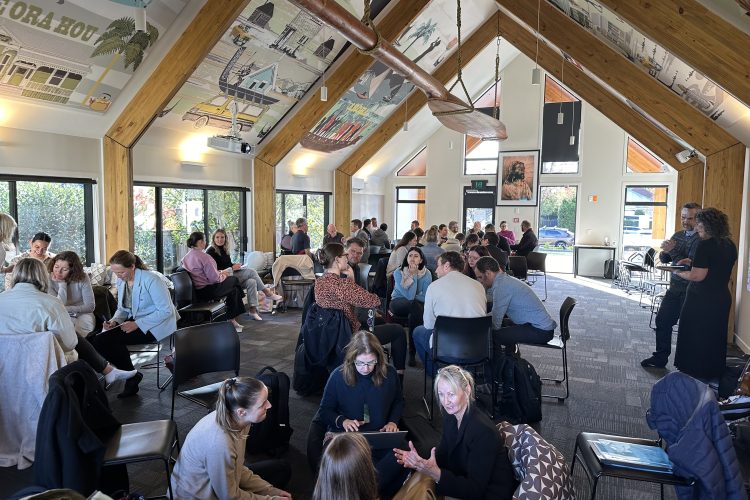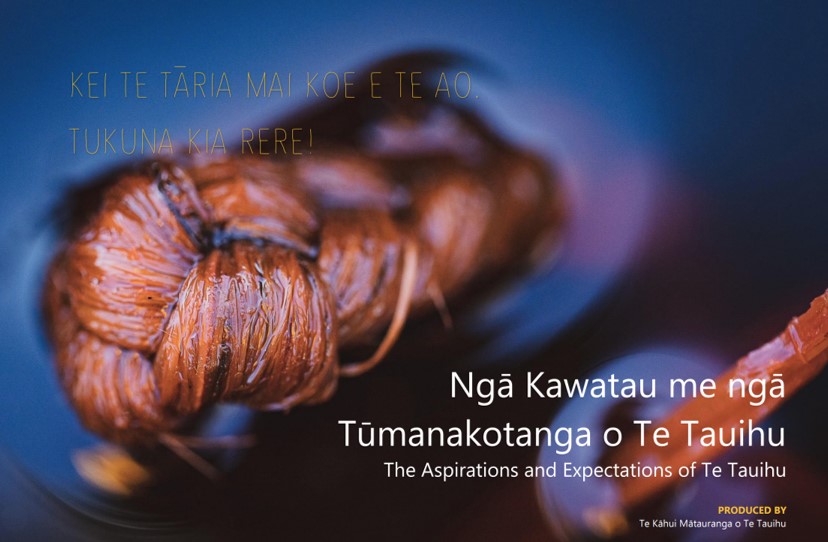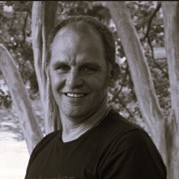
July 31st, 2024
Courageous partnerships for cultural capability in schools
Recently, I observed something in a cafe, something I identified as an act of racial bias. At that moment, I faced an immediate decision: do I speak up, or do I remain silent? I chose to step forward and say something in support of the people who were being impacted – while still conscious of not supporting this bias by a possible ‘saviour mentality’. This incident highlighted the pervasive nature of racism that is still present across Aotearoa and the importance of taking action, even in seemingly small moments. Our action needs not only to be in the larger system and structure changes that are essential but also in the micro-moments we encounter.
This recent personal experience reinforced the importance of the Leadership Lab work we’re doing in the field of cultural capability in schools. Leadership Lab is a Te Tiriti o Waitangi-led, impact-focussed leadership consultancy. We grow leaders in Aotearoa, New Zealand, who develop equitable and flourishing communities and organisations. We focus on decolonising and reindigenising to foster environments where all voices are heard and respected. This work often involves partnering with Mana Whenua and other organisations to support schools in recognising and addressing systemic biases. Racism in schools is real, which you can read more about in this piece in E-Tangata: Schools mustn’t wait for a mandate to tackle racism.
For instance, on the West Coast – Westland, Māwhera and Kawatiri region, we collaborate to support schools in dismantling exclusive, marginalising and racist systems. This involves encouraging schools to look at and address the systems, structures, attitudes and micro-moments. By walking hand in hand with Mana Whenua, in this case Ariana Stevens – Ngāti Waewae – Reo Maori Mai, we can access and influence spaces that might otherwise be closed to us, and together we can open doors they might not otherwise be able to. This collaborative partnership approach ensures that the safety, cultural knowledge, the mātauranga and aspirations of the local communities are at the forefront of our efforts. 1+1=3, in a time where numeracy is being touted as vital – this math is accurate – what we can do together is more than what we can achieve in isolation.
Another significant project is the Te Tau Ihu Secondary School Community of Practice (CoP). We are working with all 11 secondary schools in the Nelson Marlborough region across the top of the South Island. For the last four years we have worked alongside teams of leaders from these schools – developing their ability to lead in a culturally sustainable way, strengthening the work they are doing in their schools as well as growing connections across the sector. We have had the opportunity to work with Vanya George from Te Kāhui Mātauranga o Te Tauihu (the partnership of the eight iwi of this region) to co-design and facilitate the work together. This has ensured our ability to align educational strategies and practices within schools with the aspirations of Ngā Kawatau me ngā Tūmanakotanga o Te Tauihu – a document outlining the aspirations and expectations of Te Tau Ihu iwi. This co-construction process enhances cultural capability and fosters individual leadership growth for leaders and their mahi, a deeper connection between schools and the communities they serve.

Key Learnings:
-
Partnership opens doors: Working in partnership with local iwi and other organisations allows us to access spaces and opportunities that would otherwise be unavailable and opens doors they might not otherwise be able to. Together, we bring a richer set of tools, knowledge, mātauranga, and perspectives to the table.
-
Empowering through co-creation: We focus on co-creating solutions with kura and communities rather than imposing solutions. This approach ensures that the changes are sustainable and owned by those who will implement them.
-
Challenging bias requires courage: Both personally and professionally, addressing bias means making conscious choices to speak up and act, even when it’s uncomfortable. This is crucial for fostering environments of equity and inclusion.
-
Cultural capability is continuous: The work of decolonisation and indigenisation is ongoing. It requires constant reflection, learning, and adaptation to ensure educational spaces become truly inclusive and equitable.
The journey towards cultural capability is both challenging and rewarding. By leveraging partnerships, empowering local leaders, and continuously challenging biases, we can work towards creating equitable educational environments where all students have the opportunity to thrive.
Resources: Showing Up Differently – collective approaches to complex issues
Greg Jansen; Leadership Lab Senior Consultant, Director – Restorative Schools

July 31st, 2024
Courageous partnerships for cultural capability in schools
Recently, I observed something in a cafe, something I identified as an act of racial bias. At that moment, I faced an immediate decision: do I speak up, or do I remain silent? I chose to step forward and say something in support of the people who were being impacted – while still conscious of not supporting this bias by a possible ‘saviour mentality’. This incident highlighted the pervasive nature of racism that is still present across Aotearoa and the importance of taking action, even in seemingly small moments. Our action needs not only to be in the larger system and structure changes that are essential but also in the micro-moments we encounter.
This recent personal experience reinforced the importance of the Leadership Lab work we’re doing in the field of cultural capability in schools. Leadership Lab is a Te Tiriti o Waitangi-led, impact-focussed leadership consultancy. We grow leaders in Aotearoa, New Zealand, who develop equitable and flourishing communities and organisations. We focus on decolonising and reindigenising to foster environments where all voices are heard and respected. This work often involves partnering with Mana Whenua and other organisations to support schools in recognising and addressing systemic biases. Racism in schools is real, which you can read more about in this piece in E-Tangata: Schools mustn’t wait for a mandate to tackle racism.
For instance, on the West Coast – Westland, Māwhera and Kawatiri region, we collaborate to support schools in dismantling exclusive, marginalising and racist systems. This involves encouraging schools to look at and address the systems, structures, attitudes and micro-moments. By walking hand in hand with Mana Whenua, in this case Ariana Stevens – Ngāti Waewae – Reo Maori Mai, we can access and influence spaces that might otherwise be closed to us, and together we can open doors they might not otherwise be able to. This collaborative partnership approach ensures that the safety, cultural knowledge, the mātauranga and aspirations of the local communities are at the forefront of our efforts. 1+1=3, in a time where numeracy is being touted as vital – this math is accurate – what we can do together is more than what we can achieve in isolation.
Another significant project is the Te Tau Ihu Secondary School Community of Practice (CoP). We are working with all 11 secondary schools in the Nelson Marlborough region across the top of the South Island. For the last four years we have worked alongside teams of leaders from these schools – developing their ability to lead in a culturally sustainable way, strengthening the work they are doing in their schools as well as growing connections across the sector. We have had the opportunity to work with Vanya George from Te Kāhui Mātauranga o Te Tauihu (the partnership of the eight iwi of this region) to co-design and facilitate the work together. This has ensured our ability to align educational strategies and practices within schools with the aspirations of Ngā Kawatau me ngā Tūmanakotanga o Te Tauihu – a document outlining the aspirations and expectations of Te Tau Ihu iwi. This co-construction process enhances cultural capability and fosters individual leadership growth for leaders and their mahi, a deeper connection between schools and the communities they serve.

Key Learnings:
-
Partnership opens doors: Working in partnership with local iwi and other organisations allows us to access spaces and opportunities that would otherwise be unavailable and opens doors they might not otherwise be able to. Together, we bring a richer set of tools, knowledge, mātauranga, and perspectives to the table.
-
Empowering through co-creation: We focus on co-creating solutions with kura and communities rather than imposing solutions. This approach ensures that the changes are sustainable and owned by those who will implement them.
-
Challenging bias requires courage: Both personally and professionally, addressing bias means making conscious choices to speak up and act, even when it’s uncomfortable. This is crucial for fostering environments of equity and inclusion.
-
Cultural capability is continuous: The work of decolonisation and indigenisation is ongoing. It requires constant reflection, learning, and adaptation to ensure educational spaces become truly inclusive and equitable.
The journey towards cultural capability is both challenging and rewarding. By leveraging partnerships, empowering local leaders, and continuously challenging biases, we can work towards creating equitable educational environments where all students have the opportunity to thrive.
Resources: Showing Up Differently – collective approaches to complex issues
Greg Jansen; Leadership Lab Senior Consultant, Director – Restorative Schools


